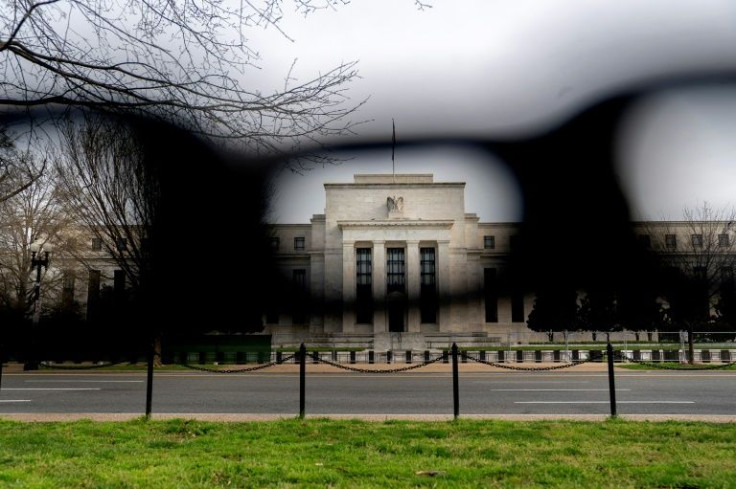Stock Markets Rise As Fed Set To Hike Rate
Stock markets rose on Tuesday as the US Federal Reserve began a two-day meeting that is expected to conclude with a big rate increase as part of its effort to tame decades-high inflation.
Central banks worldwide are tightening borrowing costs despite concerns such action could hamper the recovery from the pandemic and even push major economies into recession.
The US central bank is expected to lift the benchmark lending rate by half a percentage point for the first time since 2000, with more rate hikes likely in coming months after policymakers pledged to take an aggressive stance against inflation.
With the increase widely forecast, investors will be closely looking for clues on the plans after consumer prices accelerated to 8.5 percent in March, the highest annual level in more than 40 years.
Markets remain on edge, as the Fed also is expected to announce the roadmap for offloading its massive bond holdings as part of the process of removing stimulus from the economy.
"There is a real uncertainty and people have different opinions about what the market is going to do after the Fed raises rates and announces quantitative tightening," Karl Haeling of LBBW told AFP.
The uncertainty is made worse by the ongoing war in Ukraine and the course of the pandemic, which continues to create challenges for supply chains by adding to price pressures.
US equities ended higher after a choppy day of trading, with the broad-based S&P 500 gaining 0.5 percent.
European markets finished higher, with London up 0.2 percent, Paris adding 0.8 percent and Frankfurt gaining 0.7 percent following sharp losses Monday.
The Fed is ahead of other central banks in tackling high inflation, and on Tuesday, the Reserve Bank of Australia lifted interest rates 25 basis points, the first hike since 2010 and more than expected. Officials also indicated further increases were in the pipeline.
The Bank of England is expected to announce another rate hike on Thursday to its highest level since 2009.
Traders continued to pore over earnings results from some of the world's biggest companies.
US drug maker Pfizer reported a 77-percent jump in first quarter revenue thanks to its Covid vaccine, though it lowered its full-year profit forecast due in part to shifts in foreign exchange.
British energy giant BP said its decision to pull out of Russia as a result of the war in Ukraine pushed it deep into the red in the first three months of this year.
But its underlying performance was strong thanks to a recent surge in oil and gas prices.
On Tuesday, crude futures declined ahead of a regular meeting this week of OPEC+.
The body comprising the Organization of Petroleum Exporting Countries plus Russia and other oil-producing nations must decide on output policy amid tight supply fears triggered by the Ukraine war.

The European Union is preparing a Russian oil embargo but some countries highly dependent on Moscow's energy are seeking opt-outs from the possible ban.
China's strict Covid lockdown has weighed on crude prices due to concerns about demand in the world's top importer of oil.
New York - Dow: UP 0.2 percent at 33,128.79 (close)
New York - S&P 500: UP 0.5 percent at 4,175.48 (close)
New York - Nasdaq: UP 0.2 percent at 12,563.76 (close)
London - FTSE 100: UP 0.2 percent at 7,561.33 (close)
Frankfurt - DAX: UP 0.7 percent at 14,039.47 (close)
Paris - CAC 40: UP 0.8 percent at 6,476.18 (close)
EURO STOXX 50: UP 0.8 percent at 3,761.19 (close)
Hong Kong - Hang Seng Index: UP 0.1 percent at 21,101.89 (close)
Tokyo - Nikkei 225: Closed for a holiday
Shanghai - Composite: Closed for a holiday
Euro/dollar: UP at $1.0519 from $1.0506 on Monday
Pound/dollar: UP at $1.2491 from $1.2489
Euro/pound: UP at 84.17 pence from 84.09 pence
Brent North Sea crude: DOWN 1.8 percent at $105.55 per barrel
West Texas Intermediate: DOWN 2.0 percent at $103.10 per barrel
© Copyright AFP {{Year}}. All rights reserved.





















